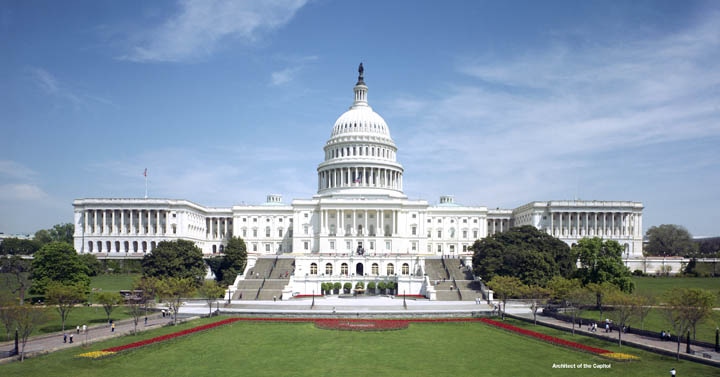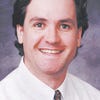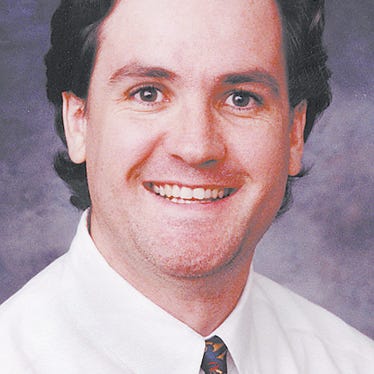
Although an MF Global-specific hearing is set for mid-December, a Thursday morning hearing of the Senate Agriculture Committee had the investment firm’s failure fully in its sights. Even though the hearing was originally set to check in on Wall Street reform, the opportunity to grill Commodity Futures Trading Commission (CFTC) head, Gary Gensler, on MF Global’s collapse – and the subsequent discovery that customer funds, perhaps over $1 billion, had been “lost” – proved too ripe for committee members to pass up.
For more, see here.
With weeks’ worth of unfavorable press coverage along with outraged legislator comments and press releases related to MF Global oversight, Gensler had to know he’d best not enter the chamber leading with his chin.
The immediate concern for the legislators revolve around suspicions that MF Global mingled customer and firm funds illegally. Throughout the hearing, committee members repeated constituent stories about the awful impact the firm’s bankruptcy has had on farm country. As investigations by the FBI and Justice Department unwind MF Global’s actions, farmers and others in the agriculture sector face frozen accounts and the possibility of recovering only a portion of their rightful funds.
However, another chief concern is this: What will it take before the oversight is robust enough to prevent occurrences such as MF Global?
If the congressional hand-wringing, legislation and endless hearings following the 2008 economic collapse, the Wall Street bailout and millions of lost U.S. jobs didn’t sufficiently strengthen oversight of the financial industry, why should investors have any confidence in the markets?
“This has essentially evolved into an MF Global hearing,” admitted South Dakota Sen. John Thune about 90 minutes into the proceedings. Thune then read a message he’d received from a grain elevator managing constituent. “’This MF Global failure is causing tremendous stress in our, and other business operations, as we’re unable to use our futures accounts and unable to access funds. The continuation of this may cause my industry to suspend purchasing grain from farmers as we’re unable and unwilling to hedge our purchases in an exchange that is not secure. This lack of certainty and security is starting to make traders across the world question the security of all positions -- even those not held in MF Global accounts. Timeliness is of utmost importance. The trust we all have in the regulated futures industry is at stake.’
“Marketing agricultural commodities through hedging and use of futures has become nearly as important as growing a crop,” said Thune. “What’s occurred with MF Global has severely damaged these practices for many producers and facilities.”
The MF Global bankruptcy “underscores the importance of having effective oversight in all of our financial markets. We need these markets to function properly, and we need consumers to have faith in them,” said Michigan Sen. Debbie Stabenow, Chairwoman of the Senate Agriculture Committee. “MF Global’s customers included farmers, ranchers, co-ops, small businesses, and individuals who use these markets to hedge their business risk. Now, their confidence is shaken, and MF Global’s customers are understandably very angry. With hundreds of millions of dollars of customers’ money missing – maybe more than a billion dollars – it’s clear that something went terribly wrong.”
Gensler also took heat for the timing and manner of his recusal from the CFTC’s investigation of MF Global. Gensler and former MF Global CEO, Jon Corzine (who has also served as New Jersey governor and senator) worked together at Goldman Sachs over a decade ago. In early November Gensler said that relationship meant he’d not be involved in MF Global dealings – something that the CFTC had already been working on for over a week.
Clearly chomping at the bit, agriculture committees in both houses are considering subpoenaing Corzine to compel testimony at coming hearings."The circumstances surrounding the MF Global bankruptcy are unprecedented,” said a joint statement by Oklahoma Rep. Frank Lucas and Minnesota Rep. Collin Peterson. “Many of our constituents have lost funds and many more have lost confidence in futures and derivatives markets, which are under the jurisdiction of our committee. On December 8, the House Agriculture Committee will hold a hearing to examine the facts and circumstances that led up to the bankruptcy, and the efforts underway to recover customer funds and return them to their rightful owners. To that end, Jon Corzine’s testimony is critical to fulfill our objectives on behalf of our constituents, which is why we have taken this extraordinary step to ensure his attendance. It is our hope the hearing next week will lay the groundwork to address the situation and begin to restore confidence."
Back at the Senate hearing, having staked out his “non-participation” position, Gensler left it to Securities and Exchange Commission Chairman Mary Schapiro to answer North Dakota Sen. Kent Conrad’s questions about the specifics of the MF Global investigation.
“We’re investigating the disclosure and accounting by (MF Global),” said Schapiro. “What they did expose in their second quarter is net exposure to sovereign debt; they exposed – but not as clearly – their gross exposure. They reported they had $16.5 billion in reverse repos, of which 70 percent was collateralized by European sovereign. So, that wasn’t as direct as the net exposure disclosure.”
An incredulous Conrad replied “That’s a loophole so big you could drive a mack truck through it. My God, if that isn’t closed down, we must ask ourselves what we’re doing.”
Thune wanted to know “in plain and simple terms” the CFTC’s plan – “not only of action items but also in terms of outreach to the ag community” – to ensure the use of hedging and futures markets can be safely continued?
“What we’re doing is really asking ourselves and the staff and each commissioner what we can do better.” said Gensler. “Specifically, what we’re doing now along with the CME (Chicago Mercantile Exchange) and National Futures Association (NFA), is conducting on-site reviews of all the futures commission merchants. (The CFTC has) taken the top dozen, or 14, and gone in to look at the segregated accounts. The CME is taking the next 35 or 40. The NFA is taking the others. We hope to finish (those reviews) in the month of December.”
For the hearing’s full opening statements, see here.
Criminal consequences?
The hearing also provided an interesting exchange prompted by Arkansas Sen. John Boozman’s query on possible penalties facing MF Global. “If a person doesn’t segregate an account and, essentially, steals the money and gambles it away … is that a criminal process? What is the penalty for that besides being fined?” asked Boozman.
Gensler: “It is quite clear in the statute and rules of the commodity world that customer funds need to be segregated. Those monies can only be invested in a certain list of permitted funds. They aren’t to be used for some other purpose other than for the customer – all day long, every day.”
Boozman: “And if someone breaks that rule and uses those funds for riskier investments, or whatever, what happens to the individuals who do that?”
Surprisingly, Gensler didn’t seem to know. “I might have to defer and get staff to get back to you. But under the Commodities and Exchange Act we just have civil penalties that we pursue in segregation cases.”
Schapiro then piped up. “We’d have the ability to fine someone and legal authorities could certainly pursue a criminal case if they could meet the standards of proof required. Breaking the rules can and should lead to enforcement action and, where appropriate, criminal action, as well.”
Boozman replied “if you go in and rob a bank or financial institution, that’s a federal crime. … There’s no ifs, ands or buts, the resources of the federal government will come to bear and you’ll go to jail for that crime. If a person, through (mingling customer and firm funds) can steal hundreds of billions of dollars and there’s no penalty except a civil (one), that’s a real problem.”
Gensler, after speaking with counsel, then clarified that “the Commodities and Exchange Act says if an individual ‘knowingly and willfully’ violates the act it’s a criminal violation for the individual.”
Boozman: “And we have a history of prosecuting those kinds of things?”
“It’s happened,” said Gensler, unconvincingly.
“Well, that’s not a history,” Boozman shot back. “Again, this is a real problem. And it’s why the American people are losing faith in their institutions.”
Non-participation or recusal?
Gensler did himself no favors by repeatedly referring to his “non-participation” in the MF Global investigation instead of simply saying “recusal.”
“I’m not too sure what the difference is,” said Kansas Sen. Pat Roberts, ranking member.
Gensler’s odd choice of words and his refusal to comment specifically on MF Global while talking about implementation of Dodd-Frank and regulations in general sent Roberts’ frustration level soaring. Gensler’s response to Roberts’ questions in past weeks “raises questions about who was in charge of CFTCs work in the early days of this event (with MF Global). According to your letter, you notified the general counsel you’d not participate in enforcement matters. Why did you come to this realization on Nov. 3? Hadn’t you been participating in official CFTC actions regarding MF Global before this date?”
Gensler: “As I mentioned, I had conversations directly with the general and my staff, the ethics officer, throughout those days. They indicated it was warranted for my involvement to stay participating.
“I indicated … that I thought it could be a distraction to the very important work of pursuing ‘where was the cash? Where was the money? Get the money back.’ And any investigation or enforcement…”
Roberts cut off Gensler and said his “non-participation” had become the true distraction. “Who was steering the ship while you were deciding what you could and could not be involved in?”
“We have talented staff, very excellent staff in enforcement and other divisions,” said Gensler.
“So, staff was in charge,” replied Roberts tartly before bringing up contact between Corzine and the CFTC last July.
“Why didn’t you recuse yourself then?” asked Roberts, before Gensler again claimed he worried his relationship with Corzine would become “a distraction for the work of the government.”
Roberts: “Well, it is now! … There’s all sorts of conjecture in the press and media about (the summer meeting with Corzine), and you’re still ‘non-participating’ -- it just raises it up as a bigger distraction. You probably should have gone ahead and said ‘Hey, I’m the (CFTC) chairman and I can make these decisions. We had two regulatory questions and you said I’m non-participating. That’s a dodge! That’s not right.”
The MF Global fallout and investigations “will go on for quite some time,” said Roberts to Gensler. “You’re going to get a lot of questions. You’re just going to say ‘well, I can’t answer because I’m not participating’? … Now, it is a distraction, Gary. Come on!”
Following the hearing, Iowa Sen. Chuck Grassley expressed his displeasure with Gensler’s inability, or unwillingness, to provide a solid timeline. “Despite an effort from several of us, there wasn’t a lot of specificity from Chairman Gensler about exactly how and when the CFTC learned of the MF Global collapse and how and when he talked to Jon Corzine about the problem. It’s surprising that Chairman Gensler didn’t have a more precise timeline to offer during his testimony. Establishing the specifics of what happened is key to figuring out how the system failed and how to fix it going forward. And that’s in addition to the immediate task of helping to minimize the damage for farmers and other investors caught in the MF Global mess. Congress will need to keep drilling down. The hearing left a lot of questions unanswered.”
About the Author(s)
You May Also Like






